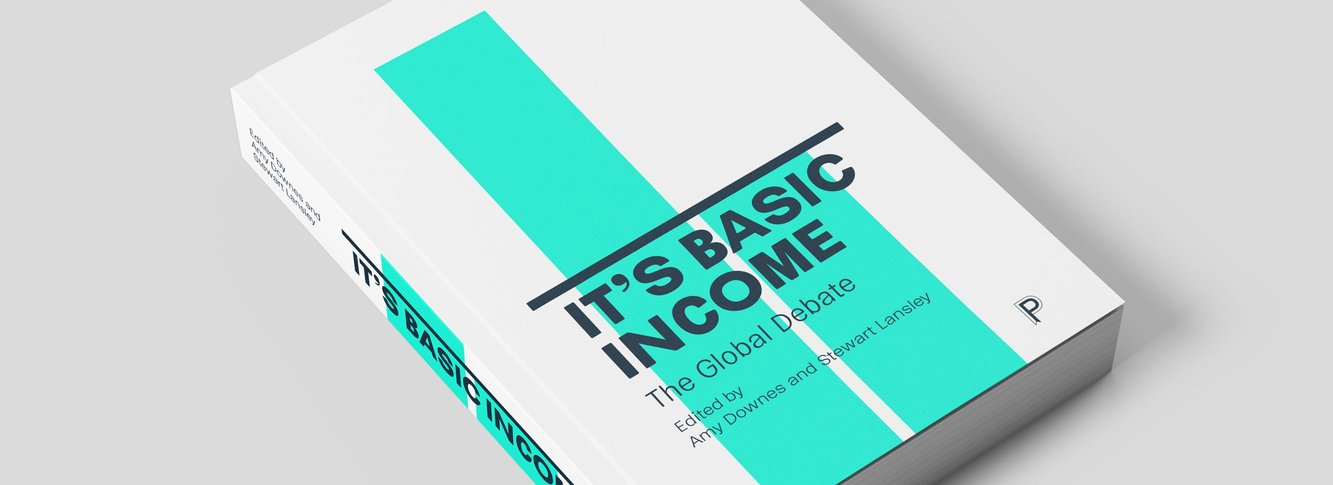| 6 mins read
Basic income is a fine formula for a populist era, as this book ably demonstrates. It is a seductively simple concept that seems to address a range of urgent problems. Its protagonists claim it can be implemented in any number of ways, to suit all tastes and needs across the world.
One is left wondering what such an infinitely flexible phenomenon adds up to. Is it a bird? Is it a plane? Is it a super idea? Or is it snake oil?
Fittingly, the book consists of thirty‐eight very short chapters, all by different contributors. Imagine you are at a workshop where everyone gets to talk on their topic for five minutes, but there's no time left for discussion. You get a lot of scraps but no solid food. We are offered a variety of perspectives, but only five of the thirty‐eight chapters come from dissenting voices. The remaining thirty‐three are authored by believers, with only a handful admitting a little doubt.
What the volume offers most helpfully is multiple interpretations of what basic income is, what it is supposed to achieve, and a sprinkling of notions about how it could be realised in practice. This does not constitute—as one of its endorsements outrageously claims: “a superb forensic analysis… leaving no stone unturned”. But it does shed some light on how and why the idea has become popular and why the fact of its popularity matters today.
What, then, is basic income? Most contributors agree that it is a ‘minimal unconditional income’ paid to individuals. Yet some say it should be for ‘everyone’, while others see it as a ‘right of citizenship’ and most practical experiments (in India, Canada, the Netherlands, Uganda, Kenya and Brazil) have selected poor recipients only. So the meaning of ‘unconditional’ remains ambiguous, as does the meaning of ‘minimal’. Some envisage ‘a level sufficient for a modest but decent standard of life’, others no more than ‘a bit of financial padding’.
Contributors’ ambitions for basic income fall into three broad and partly overlapping groups. The largest belongs to those who want to alleviate poverty, reform inadequate welfare systems and reduce gender inequalities. Next, there are those who want to enable people to get by or even flourish with little or no paid employment, either by choice or necessity, in an automated future. Finally there are visionaries for whom basic income both symbolises and effects radical transformation: they present hopes from both ends of the political spectrum.
Most contributors call for further debate and planning, or for bold innovation, without considering how basic income might be funded or administered.
Those who dare to venture into this territory pick out the easier bits. Some suggest a small payment to all may be afforded by abolishing tax allowances and/or by taxing unearned income. Some propose an incremental approach, starting with a small stipend that could be increased over time—without explaining how the passing years could make it easier to hike up payments. There are also proposals to give a small, guaranteed income to all who ‘participate’ in society by meeting specific criteria, as suggested by the late Tony Atkinson.
These are not futile suggestions, but they fail to satisfy an appetite for knowing why anyone should campaign for basic income rather than other measures to alleviate poverty and the indignities of claiming benefits.
If you feel at all hungry for a deeper understanding, you could read Luke Martinelli's studies of basic income for the Institute of Policy Research at Bath University, not included in this volume. After extensive research and modelling, he concludes: “an affordable UBI would be inadequate, and an adequate UBI would be unaffordable”.
As the small band of dissenting contributors argue, there are better ways to alleviate poverty and promote social justice. Since the only politically feasible version is a partial and inadequate basic income, why divert attention from alternatives such as “the living wage, boosting trade unionism, free childcare, radical changes in housing policy, policies to reduce working time to limit turbo‐consumption, green investment and so on”? It is a “seductive poison” that “will further divide society” and “lacks social legitimacy”.
Why, then, is such a half‐baked, slippery, un‐evidenced idea attracting so much interest? Things are getting desperate and we must all change track. But in what direction? Will we draw closer to social justice, shared power and solidarity, or to greater dependence on paltry cash hand‐outs from a powerful state?
Daniel Zamora, not a contributor to this book, sums it up well: basic income “is not an alternative to neoliberalism, but an ideological capitulation to it. In fact, the most viable forms of basic income would universalise precarious labour and extend the sphere of the market—just as the gurus of Silicon Valley hope”.
The faithful may dream on, but nothing in this book persuades me that the trade‐offs are worth it, or that basic income is anything other than snake oil.
Need help using Wiley? Click here for help using Wiley







